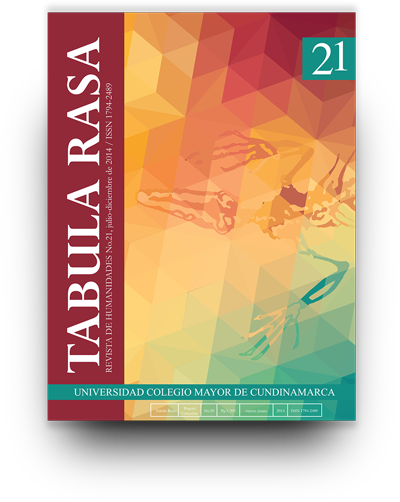The Co-option Islamic Feminism into Euro-Islam and the Loss of Liberation
La cooptación del feminismo islámico en el euro-islam y la pérdida de la liberación
Show authors biography
This paper contends that there has been a definitive and negative change in the trajectory of so-called Islamic feminism. This change has been effected in large part in Westernized settings, in particular as part of the growing discourse of Euro-Islam, European Islam, indigenization of Islam, etc. which is a discourse that comes not from governments (though it is mirrored, applauded and rewarded by governments in the region) but from Muslim civil society, activists and intellectuals. The paper sets out parameters for the use of the term ‘Islamic feminism’ whilst acknowledging it to be a problematic term. The characteristics of this change include: the move from expressing a universal but cooperative form of ‘feminism’ to a particularistic one; the unusual aspect of that particularism as an expression of muteness as opposed to empowerment, as a form of enclosure and ringfencing rather than an expression of solidarity or an attempt to work / speak / understand co-operatively; a positioning of this ‘feminism’ within an Enlightenment rather than a critical and / or decolonial normative framework; an implicit rejection of liberation in favor of assimilation; expression as a peculiar interaction between Islam and the West; an aspiration for inclusion into an unsophisticated and idealized notion of the West and a perceived teleology of progress; a distinct lack of solidarity with other oppressed groups, whether gendered or ethnic or religious or class based; co-option and complicity with neo-colonial projects and policies. The paper concludes with a re-evaluation of the Islamic feminist project in certain forms as one which has been hijacked and used to undermine the goal of women’s liberation per se and Muslim women in particular by denying Muslim women and by implication all women of color or those who express themselves in political opposition to Western norms and / or domestic and foreign policies, the right to define their own terms for liberation.
Article visits 173 | PDF visits 143
Downloads
Ameli, S.R. y A. Merali. 2004. Londres, Comisión Islámica de Derechos Humanos.
Ameli, S.R. y A. Merali. 2006. Hijab, Meaning, Identity, Otherization and Politics: British Muslim Women. Londres, Comisión Islámica de Derechos Humanos.
Ameli, S.R., M. Elahi y Merali, A. 2004. Social Discrimination: Across the Muslim Divide. Londres, Comisión Islámica de Derechos Humanos.
Ameli, S.R., A. Azam y A. Merali. 2005. Londres, Comisión Islámica de Derechos Humanos.
Ameli, S.R., B. Faridi, K. Lindahl y A. Merali. 2006b. Law and British Muslims: Domination of the Majority or Process of Balance. Londres, Comisión Islámica de Derechos Humanos.
Ameli, S.R., S.M. Marandi, S. Ahmed, A. Merali y S. Kara. 2007. The British Media and Muslim Representation: The Ideology of Demonisation. Londres, Comisión Islámica de Derechos Humanos.
Anderson, E. primavera, 2011. “Feminist Epistemology and Philosophy of Science”, en: Edward N. Zalta (ed.), The Stanford Encyclopedia of Philosophy (edición primavera de 2011), URL = http://plato.stanford.edu/archives/spr2011/entries/feminism-epistemology/.
Ansari, F. 2006. British Anti-Terrorism: A Modern Day Witchhunt. 2a. ed., Londres, Comisión Islámica de Derechos Humanos.
Ansari, F. 2007. “The Crime of Rhyme: The Extraordinary Case of Samina Malik” http:// www.islamicawakening.com/viewarticle.php?articleID=1328
Asadabadi, S.M. 2011, 20 de mayo. “The Secret War: The Zionist Spy and the Formation of the Shia-Con (aka UMAA)” http://oppression.org/site/index.php/world/americas/148- the-secret-war-the-zionist-spy-and-the-formation-of-the-shia-con
Blair, T. 2005, 16 de julio. «Texto completo: Blair Speech on Terror» http://news.bbc. co.uk/1/hi/uk/4689363.stm
Biko, S. 1987. I Write What I Like. Londres, Heinemann.
Briggs, R. y J. Birdwell. 2009. Radicalisation among Muslims in the UK. Documento de Trabajo sobre Políticas MICROCON 7, Brighton: MICROCON.
Briggs, R., C. Fieschi y H. Lownsbrough. 2006. ‘Bringing it Home: Community-based approaches to counter-terrorism’. Londres, Demos.
Bruce, D. 2006, septiembre. “Racism, Selfesteem and Violence in SA: Gaps in the NCPS” explanation?’ SA Crime Quarterly (17): 32-36.
Cameron, D. 2011, 5 de febrero. “Transcripción completa | David Cameron | Speech on radicalisation and Islamic extremism” New Statesman. Recuperado: http://www. newstatesman.com/blogs/the staggers/2011/02/terrorism-islam-ideology
EA Worldview. 2011, 20 de abril. ‘Documento de WikiLeaks sobre Siria: The US
Government Support of Opposition Groups, Civil Society, and Human Rights (abril, 2009)’http://www.enduringamerica.com/home/2011/4/20/syria-wikileaks-documentthe-us-government- support-of-opposi.html
Fanon, F. 2001. The Wretched of the Earth. Londres, Penguin.
Ferguson, N. 2011. Civilization: The West and the Rest. Londres, Allen Lane.
Fukuyama, F. 1992. The End of History and the Last Man. Nueva York, The Free Press.
Greer, G. 1999. The Whole Woman St Ives: Doubleday.
Hamza, K. 2011, 5 de febrero. citado en “Ikhwanweb: Egypt’s Revolution Is a People’s Revolution with No Islamic Agenda”. Disponible en: http://www.ikhwanweb.com/ article.php?id=27963
Huntington, S. 1996. The Clash of Civilizations and the Remaking of World Order. Nueva York: Simon & Schuster.
Jad, I. 2011. “Islamist Women of Hamas: between feminism and nationalism” Inter Asia Cultural Studies 12:2, 176-201.
King, J.E. 1991. “Dysconscious. Racism: Ideology, Identity, and the Miseducation of Teachers”. The Journal of Negro Education. 60(2): 133-146.
Kramerae, C. 1981. Women and Men Speaking; Frameworks for Analysis. Rowley, Massachusetts, Newbury House.
Merali, A. 2012 (en prensa). Blaming the Victim, the Impossible Muslim and the Big Lie: Internalisation of Government Demonisation of Muslims in the UK. París, Maison des Sciences de l’Homme.
Mir-Hosseini, Z. 2010. “Understanding Islamic Feminism. An interview with Ziba
Mir-Hosseini”. Disponible en: http://www.countercurrents.org/sikand070210.htm Recuperado: 20.12.11.
Mir-Hosseini, Z. 2011. “Beyond ‘Islam’ vs ‘Feminism’”. IDS Bulletin, 42: 67-77.
Moghaddem, V. verano 2002. “Islamic Feminism and Its Discontents: Toward a Resolution of the Debate”. Signs, 27(4):1135-1171.
Newcomb, S.T. 2008. Pagans in the Promised Land: Decoding the Doctrine of Christian Discovery, Goldon: Fulcrum.
Nimako, K. y G. Willemsen. 2011. The Dutch Atlantic: Slavery, Abolition and Emancipation (Decolonial Studies, Postcolonial Horizons. Londres: Pluto Press.
Pyke, K. y T. Dang. junio, 2003. “‘FOB’ and ‘Whitewashed’: Identity and Internalized Racism Among Second Generation Asian Americans”. Qualitative Sociology. Países Bajos, Springer.








